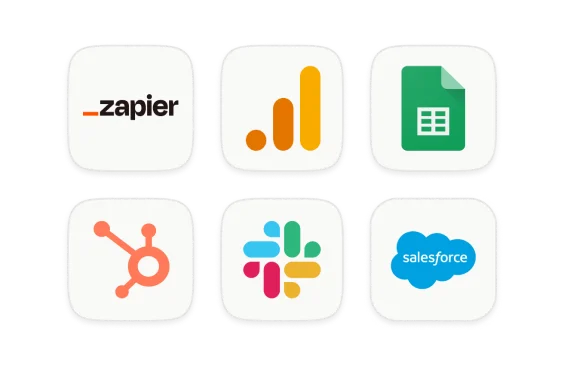Dynamically pass Hidden Fields from a URL to an embedded form
We are currently running an A/B test on the name of this feature, so you might see URL parameters instead of Hidden Fields in your account.
Want to dynamically pass Hidden Fields from your website URL to an embedded form? Read on to learn how to reference Hidden Fields from your website URL to an embedded form.
Check out this article for an introduction to Hidden Fields.
Looking to add static Hidden Field values that display in forms embedded on websites and email messages? Check out this article.
1. Open the form that you want to pass Hidden Fields to from your website URL.
2. Add all the Hidden Fields to your form that you want to pass from your website URL by going to Logic > Personalize with data > Hidden Fields.
New to Hidden Fields? Check out this guide on adding Hidden Fields to your form.
Here, we want to know whether our form respondents are logged into our site when they answer the form. So, we’ll add “login” as a Hidden Field.
Be sure to add all the Hidden Fields you want to pass from your website's URL to your form.
3. Go to the Share panel and click Embed in a web page.
4. Select the Advanced tab in the side menu on the right and check that the Read URL parameters setting is toggled on. By default, this setting is enabled.
5. Now, when we embed the form in our site, any Hidden Fields in our form that correspond to parameters in our URL will be passed automatically to our form.
In our example, if the user is logged in to our site, the parameter in the URL is “?login=true”, whereas if the user isn't logged in, it’s “?login=false”.
6. When a respondent answers the form, you'll be able to see the Hidden Field data in your Responses.


